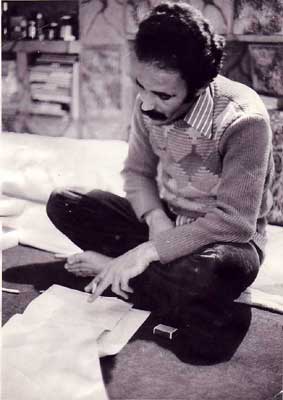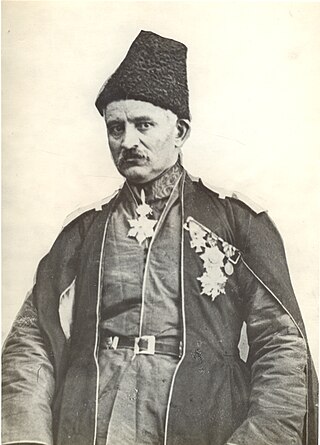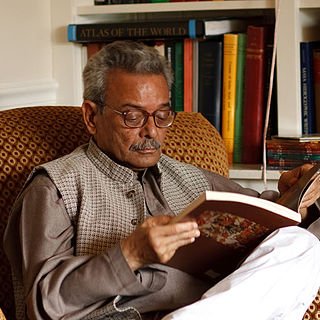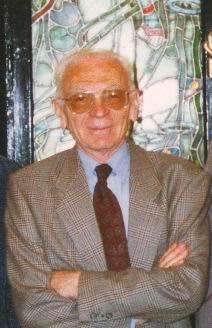Related Research Articles

Matthew Arnold was an English poet and cultural critic who worked as an inspector of schools. He was the son of Thomas Arnold, the celebrated headmaster of Rugby School, and brother to both Tom Arnold, literary professor, and William Delafield Arnold, novelist and colonial administrator. Matthew Arnold has been characterised as a sage writer, a type of writer who chastises and instructs the reader on contemporary social issues. He was also an inspector of schools for thirty-five years, and supported the concept of state-regulated secondary education.

Persian literature comprises oral compositions and written texts in the Persian language and is one of the world's oldest literatures. It spans over two-and-a-half millennia. Its sources have been within Greater Iran including present-day Iran, Iraq, Afghanistan, the Caucasus, and Turkey, regions of Central Asia and South Asia where the Persian language has historically been either the native or official language. For example, Rumi, one of the best-loved Persian poets, born in Balkh or Wakhsh, wrote in Persian and lived in Konya, at that time the capital of the Seljuks in Anatolia. The Ghaznavids conquered large territories in Central and South Asia and adopted Persian as their court language. There is thus Persian literature from Iran, Mesopotamia, Azerbaijan, the wider Caucasus, Turkey, Pakistan, Bangladesh, India, Tajikistan and other parts of Central Asia. Not all Persian literature is written in Persian, as some consider works written by ethnic Persians or Iranians in other languages, such as Greek and Arabic, to be included. At the same time, not all literature written in Persian is written by ethnic Persians or Iranians, as Turkic, Caucasian, and Indic poets and writers have also used the Persian language in the environment of Persianate cultures.

Sohrab Sepehri was a notable Iranian poet and painter. He is considered to be one of the five most famous Iranian poets who have practiced modern poetry alongside Nima Youshij, Ahmad Shamlou, Mehdi Akhavan-Sales, and Forough Farrokhzad. Sepehri's poems have been translated into several languages, including English, French, Spanish, Italian and Lithuanian.

Sadegh Hedayat was an Iranian writer and translator. Best known for his novel The Blind Owl, he was one of the earliest Iranian writers to adopt literary modernism in their career.

Mohammad-Ali Jamālzādeh Esfahani was one of the most prominent writers of Iran in the 20th century, best known for his unique style of humour. In view of his vast influence over Persian short story writing, he is often referred to as the father of this genre in Iran.

Ahmad Nadeem Qasmi born Ahmad Shah Awan was an Urdu language Pakistani poet, journalist, literary critic, dramatist and short story author. He wrote 50 books on poetry, fiction, criticism, journalism and art. He was a major figure in contemporary Urdu literature. His poetry was distinguished by its humanism, and his Urdu afsana work is considered by some second only to Munshi Prem Chand in its depiction of rural culture. He was also the editor and publisher of the literary magazine Funoon for almost half a century. He received awards such as the Pride of Performance in 1968 and Sitara-e-Imtiaz in 1980 for his literary work.

Saeed Nafisi was an Iranian scholar, fiction writer and poet. He was a prolific writer in Persian.

Al-Tha'alibi (961–1038), was a writer famous for his anthologies and collections of epigrams. As a writer of prose and verse in his own right, distinction between his and the work of others is sometimes lacking, as was the practice of writers of the time.

Houshang Golshiri was an Iranian fiction writer, critic and editor. He was one of the first Iranian writers to use modern literary techniques, and is recognized as one of the most influential writers of Persian prose of the 20th century.

Mohammad-Reza Shafiei Kadkani is an Iranian writer, poet, literary critic, editor, and translator.
Shahrokh Maskoub, was an Iranian writer, translator, social critic, literary historian, and university professor. Meskoob is considered a preeminent Shahnameh scholar.

Mirza Fatali Akhundov, also known as Mirza Fatali Akhundzade, or Mirza Fath-Ali Akhundzadeh, was a celebrated Iranian Azerbaijani author, playwright, atheist, philosopher, and founder of Azerbaijani modern literary criticism, "who acquired fame primarily as the writer of European-inspired plays in the Azeri Turkic language".

Shamsur Rahman Faruqi was an Indian Urdu language poet, author, critic and theorist. He is known for ushering modernism to Urdu literature. He formulated fresh models of literary appreciation that combined western principles of literary criticism and subsequently applied them to Urdu literature after adapting them to address literary aesthetics native to Arabic, Persian, and Urdu. Some of his notable works included Sher-e-Shor Angez (1996), Ka’i Chand The Sar-e Asman (2006), The Mirror of Beauty (2013), and The Sun that Rose from the Earth (2014). He was also the editor and publisher of the Urdu literary magazine Shabkhoon.
Literary criticism is a relatively young discipline in Iran since there had been no comparable tradition of literary criticism before the nineteenth century, when European influence first began to penetrate the country.
Bilal Xhaferri was an Albanian writer and political dissident against the Albanian communist regime. He is seen as the representative poet of the Albanian Chameria.

Siavash Kasrai was an Iranian poet, literary critic and novelist. He is well-known for his epic poem of Arash the Archer written in the late 1950s. An active supporter of the Communist Tudeh Party of Iran from the late 1940s to the mid 1980s, he distanced himself from its leadership in 1988–1990, and turned into an outspoken critic in the mid 1990s.

Malappurath Raman Chandrasekharan, popularly known as M.R. Chandrasekharan or simply M. R. C., is a Malayalam literary critic and author from Kerala, India. Chandrasekharan has published more than 50 books in different literary sections like literary criticism, translations, politics, social etc. He also works in the field of journalism and education. He won the 2010 Kerala Sahitya Akademi Award for Literary Criticism.

Mircea Zaciu was a Romanian critic, literary historian and prose writer.
Hüseyin Cemil Meriç was a Turkish writer and translator who wrote various articles in social sciences and contributed to Turkish literature with his twelve books in the twentieth century.
She'r-e Nimaa'i is a school of Modernist poetry in Iran that is derived from the literary theory of Nima Yooshij, a contemporary Iranian poet. Nima Yoshij revolutionized the stagnant atmosphere of Iranian poetry with the influential poem Afsaneh, which was the manifesto of She'r-e Nimaa'i. He consciously challenged all the foundations and structures of ancient Persian poetry. The nature of Mazandaran, social criticism, and humor are just a few examples of the themes that Nima Yoshij used in his poems. She'r-e Nimaa'i was the source of inspiration and growth of many great modern Iranian poets, including Sohrab Sepehri, Forough Farrokhzad, Mehdi Akhavan-Sales and Fereydoun Moshiri.
References
- ↑ Parsinejad, Iraj. A History of Literary Criticism in Iran (1866–1951). Bethesda, MD: Ibex, 2003. pp. 72.